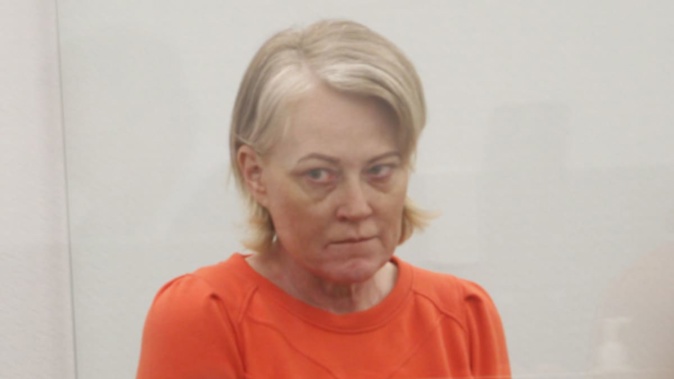

A Wellington woman accused of violently murdering her elderly mum then staging the scene to look like a fall has denied the crime, with her lawyer accusing police of “tunnel vision”.
Julia DeLuney is on trial at the High Court in Wellington for the murder of her 79-year-old mother Helen Gregory in her Khandallah home.
The defence says someone else was responsible for the killing in January last year, suggesting someone was knocking on neighbourhood doors on the night of the death.
Gregory’s obituary described her as a dearly loved mother, mother-in-law and treasured grandmother.
Neighbours said she was a keen gardener, and a quiet woman who kept to herself.
Opening the Crown’s case today, prosecutor Nicole Jamieson told the jury that on January 24 last year DeLuney arranged to visit her mother at her Baroda St home to book tickets to the ballet.
During the three-and-a-half-hour visit, the pair sorted her mother’s clothes and ate dinner together. DeLuney left at 9.35pm, returning to her Paraparaumu home.
The Crown says during that visit, DeLuney attacked her mother, causing extensive head wounds that killed her.
Jamieson told the jury when first responders arrived at the house, they found blood on the bedroom carpet and walls, down a hallway and on a ladder leading to the attic.
Gregory had extensive head wounds and a post-mortem found she died from complications of blunt force trauma.
Jamieson said DeLuney told police she was at the house that night and her mother had fallen while putting toilet rolls in the attic.
She said she moved her mother to the bedroom, but at that stage Gregory didn’t have significant injuries.
When she returned to the house later that night with her husband, the bedroom was a mess. She told police she may have been the one to put blood on the hallway walls and ladder but denied killing her.
The Crown’s case is that earlier in the evening DeLuney had attacked her mother and left her dead or dying. She’d then staged the scene to make it look like she had fallen.
The Crown says the former school teacher is responsible for Gregory’s death, and the issue is one of identity.
Jamieson said it may never be known why DeLuney killed her mother, but at the time the defendant was having financial difficulties.
In the days before the killing DeLuney contacted her mother, saying her cryptocurrency account had made a profit and she needed to transfer $15,000 to her so she could withdraw the money.
The Crown says she used that money to pay off debts.

Julia DeLuney in the dock during her trial at the High Court in Wellington. Photo / Mark Mitchell
Tunnel vision
In a brief opening statement to the jury, DeLuney’s lawyer Quentin Duff was critical of the police’s handling of the case.
He said his client had been charged with murder because the statements she’d given to police after Gregory’s death didn’t match what police found at the scene.
Police had misunderstood his client’s honest, albeit not perfect, explanation to them, he said.
Because of this, police had developed “tunnel vision” that excluded the most obvious explanation that someone else had killed Gregory.
He told the jury that night a neighbour had heard a knock at the door and opened it to find no one there.
That suggested someone was knocking on doors in the neighbourhood that night and Gregory had opened her door and met her death, he said.
Another neighbour told police on the night of Gregory’s death, curtains that were always closed at night were still open after his client left the house. Yet the next day, police found them closed.
He said the obvious activity in the street that night demanded a police investigation that focused on that, rather than his client.
“This night did not deteriorate from ballet tickets to murder.”
The jury trial before Justice Peter Churchman is expected to take four to five weeks.
Catherine Hutton is an Open Justice reporter, based in Wellington. She has worked as a journalist for 20 years, including at the Waikato Times and RNZ. Most recently she was working as a media adviser at the Ministry of Justice.

Take your Radio, Podcasts and Music with you









